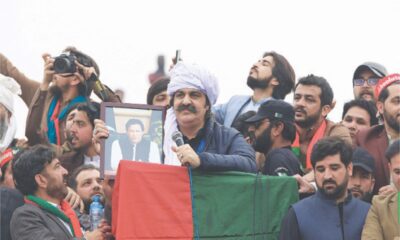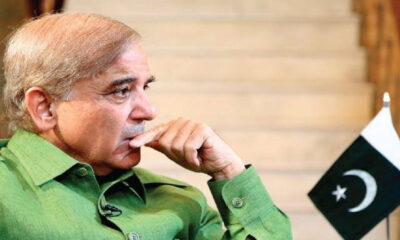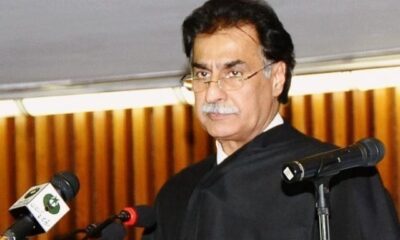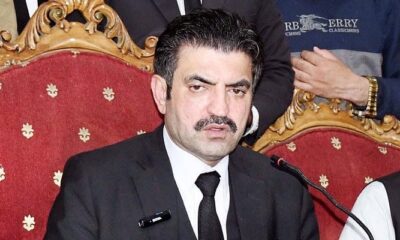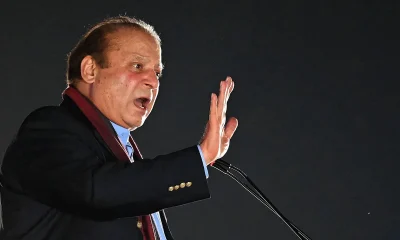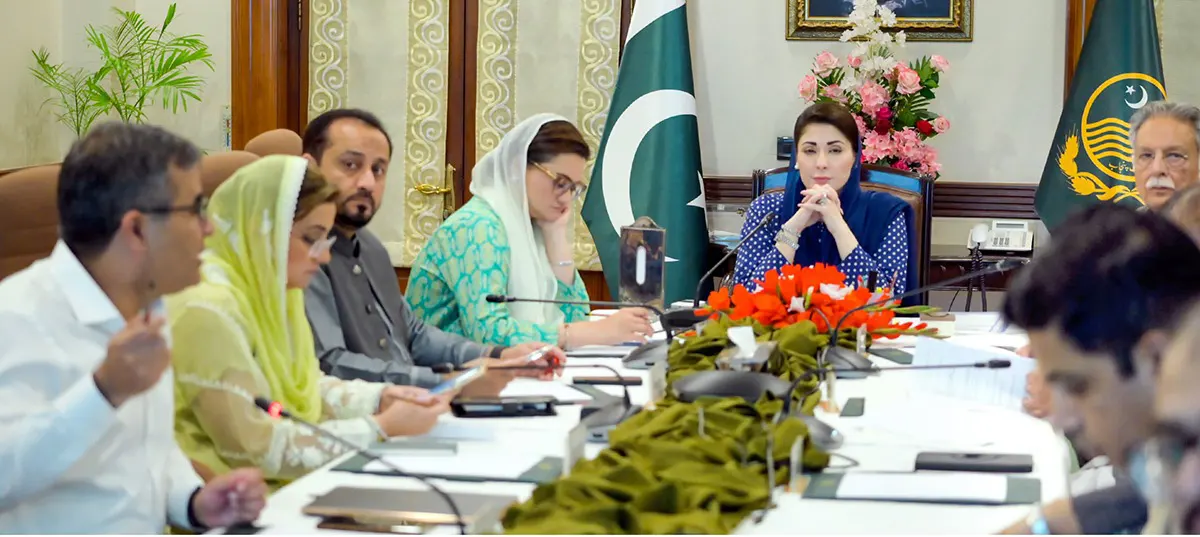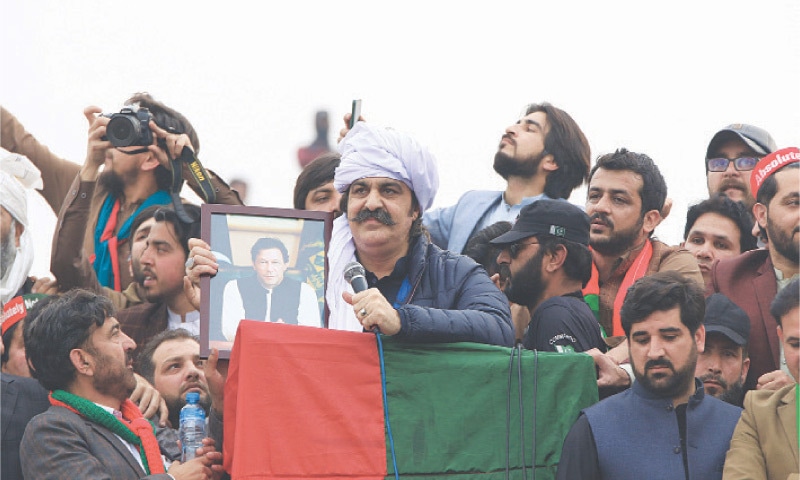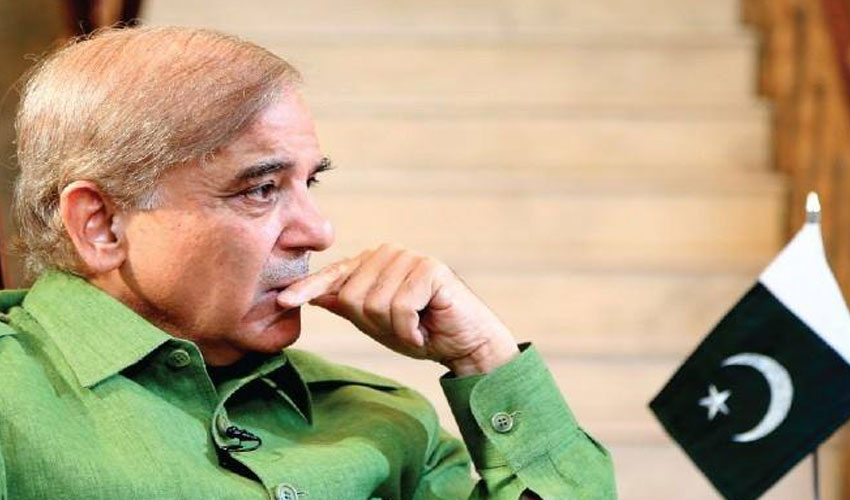- Civilians cannot be deprived of fundamental rights, argues PTI counsel.
- AGP submits details of people in military custody; list not public yet.
- CJP cautions AGP to take “special care” of women, children.
ISLAMABAD: Attorney General for Pakistan (AGP) Mansoor Usman Awan confirmed Tuesday that military courts were trying no civilian at the moment.
The AGP’s remarks came during the fourth hearing of the petitions filed against the trial of civilians in military courts.
In yesterday’s hearing, Chief Justice of Pakistan (CJP) Umar Ata Bandial had asked the AGP to “reassure” him that no such trial would occur as long as the case was being heard in the court.
The AGP had confirmed that no trial of civilians was currently underway.
However, later in the evening, Inter-Services Public Relations (ISPR) Director General (DG) Major General Ahmed Sharif Chaudhry said that proceedings against the 102 people handed over for trial were already underway.
A six-member larger bench, headed by Chief Justice Umar Ata Bandial and comprising Justice Ijazul Ahsan, Justice Muneeb Akhtar, Justice Yahya Afridi, Justice Ayesha Malik, and Justice Mazahir Ali Naqvi, is hearing the petitions against the government’s decision to try civilians in military courts.
The government announced that those involved in the violence that erupted on May 9 — in which several government buildings and army installations were vandalised — would be tried under army laws.
The petitions, separately filed by PTI Chairman Imran Khan, former chief justice Jawwad S Khawaja, legal expert Aitzaz Ahsan, and five civil society members, including Piler Executive Director Karamat Ali, have requested the apex court to declare the military trials unconstitutional.
During the previous hearings, ex-CJP’s lawyer Khawaja Ahmed Hussain, petitioner Aitzaz Ahsan’s counsel Latif Khosa, and civil society lawyers Faisal Siddiqui and Salman Akram Raja completed their arguments.
‘Conflicting statement’
After the AGP’s clarification, the PTI chief’s counsel took to the rostrum at the start of the hearing and said that the AGP and the ISPR DG had conflicting statements.
“A press conference was held by ISPR DG yesterday in which he talked about the trial of 102 people. The Attorney General and ISPR DG have conflicting statements,” he said.
To this, the AGP responded: “I stand by my statement even today.”
He added that the representatives of the Ministry of Defence were present in the court and could explain the situation better.
At this, Justice Ayesha observed: “We are currently reviewing existing judicial precedents.”
Moreover, the CJP expressed faith in the AGP’s statement, directing the court’s attention to the matter at hand.
‘Can civilians be tried under Army Act?’
Lawyer Bhandri then resumed his arguments pertaining to the case, contending that civilians cannot be tried in military courts.
“I will not talk about the trial of soldiers and the powers of the court,” he said.
“However, whether a crime can come under the Army Act or not is a different question,” he said, adding that it must be determined whether there can be a trial [of a civilian] in military courts for crimes related to the forces.
Justice Ahsan remarked that Article 175(3) of the appointment of judges came in 1986.
“In comparison to the judicial precedents you are talking about, the circumstances and events are completely different now,” he observed.
Justice Munib then asked Bhandari what protection the Constitution gave civilians that military officers did not have.
Bhandari responded that the fundamental rights mentioned in the Constitution do not apply to military personnel and officers.
“My arguments will be against the military trial of civilians only. I have nothing to do with the issue of trial against soldiers,” he added.
Bhandari also submitted that Parliament could not allow civilian trials in military courts without a constitutional amendment, adding that in the 21st constitutional amendment, the principle was established that a constitutional amendment is required for trying civilians [under the Army Act].
Justice Ayesha asked: “[But] what if there is an aspect of an internal relationship, then can’t the civilian be tried in the military courts?”
Justice Ahsan further observed: “Principles such as threats to war and defense of domestic relations are laid down in the judgment of the 21st Amendment case.”
Internal facilitation
Turning to the AGP, Justice Afridi asked if civilians were being linked to the forces internally.
The AGP responded that the inquiry looked into accusations of facilitation from within the army.
Justice Ayesha observed that civilians could be tried in a military court, according to the F B Ali case.
“According to judicial precedents, if civilians have internal relations in the forces, there can be a trial in military courts,” she added.
However, she asked who was responsible for determining that a civilian was internally connected and, therefore, would be tried in a military court.
‘Nothing in writing’
Justice Afridi then asked the AGP under what law the cases of the accused were being transferred to army courts.
AGP Mansoor responded that it was done under 2D (1).
At this point, the CJP remarked: “Interestingly, we don’t have an official Secret Act available.”
Adding that there was nothing in writing available on the matter, he asked the AGP to “assist the court” as to what offenses fell under 2D (1).
Justice Ahsan added that the discretionary power to allow trials of civilians in military courts should be exercised transparently, while Justice Akhtar remarked that according to the F B Ali case, civilians could be tried in military courts under the Army Act in war situations only.
“If there is no war situation, a constitutional amendment is required for trying civilians in military courts.”
‘Judge appointed under Article 175 (3) should conduct trial’
Continuing his arguments, the PTI counsel argued that civilians could not be deprived of fundamental rights.
Justice Ayesha observed that Section 2D of the Army Act says it will apply to those not members of the armed forces.
Bhandari responded that it applied only to those civilians who “influence” the forces’ operations.
Justice Naqvi asked: “How did the ATC allow the transfer when the crime listed in the Army Act is not on record?”
The PTI counsel said: “Article 175 (3) of the Constitution deals with the judicial procedure.”
“Articles 9 and 10 of the Constitution talk about fundamental rights,” adding that while these articles are separate, they are related.
“Fundamental rights require that the judge appointed under Article 175 (3) should conduct the trial,” Bhandari contended and said that the court martial of civilians does reflect nicely on the judicial system.
“No one willingly allowed civilians to be tried in military courts,” he said.
“For trial under the Army Act, the offence must be under the Official Secrets Act, Justice Ayesha noted, requesting that the Official Secret Act be produced.
According to the Official Army Act, it is an offence to attack or use any restricted area for the enemy’s benefit, Bhandari said.
The CJP then remarked on the importance of army officers’ morale.
Following this, the hearing was adjourned for half an hour.
‘Arrest without charge?’
After the hearing resumed following a 30-minute break, advocate Bhandari continued his arguments.
He contended that in a case against Ahmed Faraz for writing poems against the army, it was said that the Army Act did not apply to civilians.
The PTI counsel also requested that those responsible for May 9 events be given open public trials conducted under anti-terrorism provisions.
He said the FIRs on May 9 and the subsequent days were filed under anti-terrorism provisions, adding that these were bailable offences and did not come under the Army Act.
At this, Justice Akhtar inquired: “When no one comes under the ambit of the Army Act, how can action be taken against them?”
The CJP concurred and said it was beyond understanding how the army could arrest someone if there was no evidence against them.
Justice Ahsan remarked: “According to the record, there is no charge against the arrested persons. How can someone be kept in military custody without charge?”
The CJP then observed that the bench would have to ask the AGP for details that would be important to parents.
Due legal process
Following the PTI counsel, AGP Mansoor began his arguments. He informed the bench that he would submit all relevant documents for judicial review.
“There is a complete legal process after the completion of which the arrests were made,” he said.
He further said he disagreed with the statements shared by the petitioner, at which Justice Ayesha told him to provide data.
The AGP replied that he would do so and would also submit details of charges under Section 73 of the Army Act.
The apex court’s top judge then asked the AGP to respond to the questions the bench had asked him the day prior.
Justice Naqvi remarked: “You stated that the trial has not yet started in the military courts.”
I stand by my statement, the AGP responded and said he would submit a written reply.
“102 people are in military custody,” he said.
Enumerating the facilities provided to those under arrest, the AGP said people in military custody could talk to their families on the phone.
List of 102 arrested; facilities
The AGP also submitted the details of 102 people in military custody to the court.
Along with the facility to contact their families, those arrested also have access to books and special attention is being paid to their food and drinks, he assured the bench.
“Will the list of 102 people you gave be made public?” Justice Ayesha asked.
The AGP requested that the list of names and details of 102 persons not be made public.
“What is wrong with making the list public when you have made it?” Justice Ayesha asked, while Justice Afridi urged the AGP to make the list public so people knew who was in military custody — especially with Eid approaching.
“I will inform the judges in the chambers in an hour about making the list public, AG Mansoor said.
The bench then instructed him to ensure the well-being of those under arrest, advising him to ensure that they could contact their families.
No trials so far
Advocate Latif Khosa then said he didn’t understand why the government was so reluctant to make the list 102 people public.
He pointed out that the ICJ report also mentioned the death penalty in the military trial.
However, the AGP reassured him that the death penalty could only be imposed if a foreign agent was involved.
“There is no evidence of any foreign agent being involved in the current cases,” he said.
The AGP reiterated that “there is no death penalty and that the arrested persons are under investigation.”
“These are not summary trials; people are allowed to have lawyers,” the AGP said.
Lawyer Faisal Siddiqui then requested that the military trials not be started until the next hearing.
The AGP then said there is no trial of any of the 102 people in military custody yet.
“It is not known where the investigation will reach in the next two weeks,” he said.
The CJP said: “I am not cross-examining you. The arrested people are citizens, take care of them.”
He also cautioned the AGP to take “special care” of journalists, lawyers, women and children.
“We will see you after Eid. We will tell you in the first week after Eid when the case will be heard,” the CJP said, adjourning the hearing.


 Latest News3 days ago
Latest News3 days ago
 Latest News3 days ago
Latest News3 days ago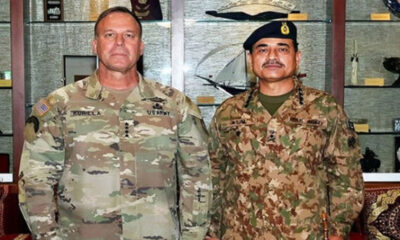
 Latest News3 days ago
Latest News3 days ago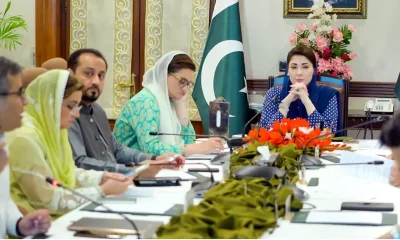
 Latest News3 days ago
Latest News3 days ago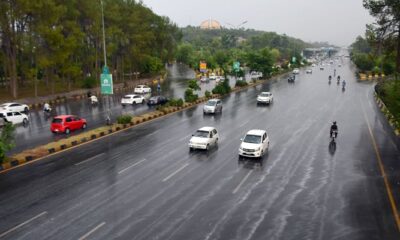
 Latest News3 days ago
Latest News3 days ago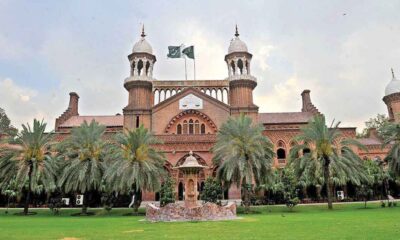
 Latest News3 days ago
Latest News3 days ago
 Business14 mins ago
Business14 mins ago
 Latest News8 mins ago
Latest News8 mins ago
